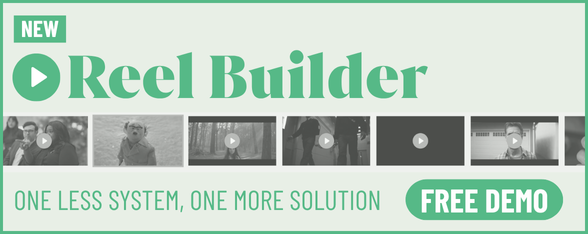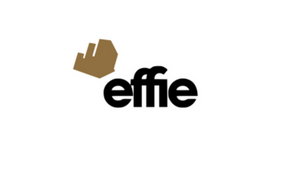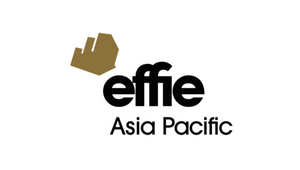
Creating an Alphabet to Preserve a Culture with Microsoft and McCann

The UN predicts that 90% of languages could be extinct within the century. Highly at risk is the native tongue of the world’s largest nomadic group, the Fulani people.
This West African community spans Guinea, Mali, Chad and Sierra Leone, and speaks the language Pulaar. As a spoken only language, Pulaar didn’t have a writing system until 1989 when two teenage brothers, Ibrahima and Abdoulaye Barry, created an alphabet for it.
Fast forward to the present day, and after growing rates of illiteracy and the subsequent loss of traditions, Microsoft has set about helping the brothers preserve Pulaar – and detach it from colonisers’ languages – by digitising the alphabet as ‘ADLaM’. The aim was to optimise ADLaM to reflect how the Fulani community is using it currently, and make it permanently accessible for generations to come.
In 2024, the project won a Gold Multi-Region Effie Award in the Positive Change: Social Good - Brands category.
“Microsoft’s mission is to empower all people and all organisations to achieve more. We live in the world of technology. If you can’t access technology, not only is your language and culture at risk, but your opportunities as well,” says Andrew Glass, principal manager of product management at Microsoft. “The Barrys deeply understood that to empower them and the Fulani people, they needed tech partners like Microsoft to help them expand access.
“We see Microsoft technologies playing a valuable supporting role for language communities in their language education and revitalisation programmes,” he continues. “Enabling a language on Windows or other platforms can promote the feeling that a language is relevant in the modern world, particularly among younger community members, and can make it easier for community members to communicate in and learn their language.”
After Microsoft had initially engaged with the Barry brothers, the brand introduced creative agency McCann New York, who first worked on a blog post about the ADLaM project for Microsoft’s Unlocked website. During interviews, they discovered that the Fulani community had changed the shapes of ADLaM, revealing the need for a simpler digital version of Pulaar that reflected the handwritten usage.
“There is no doubt that there is incredible urgency in preserving languages and cultural heritage of diverse communities around the world,” says Socrates Papazoglou, EVP and executive account director at McCann New York. Despite this pressure, he explains that the team was focused on helping advance the Barry brothers' efforts. “They had spent their whole life building momentum for ADLaM. We just wanted to supercharge and empower them to gain even more momentum for the Fulani people.
“The key is to work with the communities,” he adds. “ADLaM’s situation and alphabet was very unique and we were incredibly excited about making the typeface reflect Fulani design and culture.”

This aligns with Microsoft’s design philosophy, ‘Nothing About Us Without Us’, which means that the digitisation process had to have the Fulani community as its guiding force. Being a nomadic group, this was particularly challenging as the usage of Pulaar changes drastically across the region. “In this way, the alphabet becomes even more crucial to standardise how the Fulani can communicate with each other,” says Socrates.
“It’s why we see the ADLaM alphabet not as a tool for expression, but as an operating system for survival.”
Unicode forms the backbone of any digital alphabet, but long before reaching that stage, McCann worked closely with the Barrys and researched many different Fulani textile designs to decide how to simplify and shape the new letterforms. McCann then partnered with two typeface designers, Mark Jamra and Neil Patel, to create the final alphabet.
“We were all building together to create the typeface that celebrates Fulani culture and simplifies letterforms to improve readability and hopefully literacy,” says Socrates. The alphabet was then deployed across the Microsoft 365 suite, which he notes did have a learning curve.
“When we first deployed the typeface, we distributed it as a download. It was embedded in Microsoft 365 so that if someone used ADLaM Display, anyone in the world could open it and read it. But, people needed to download the font to actually use it. We then realised we needed to make a version with Latin characters to make it more discoverable.
“Once we redeployed the typeface with both versions, it appeared in the font drop down menu on all their applications. For the Barry Brothers, that was key – making it easy for everyone to use and access.”
Working with the Barrys and local teachers, McCann also developed educational resources to teach ADLaM in Fulani communities. This included posters for classroom walls, letter-tracing worksheets and even a culturally relevant ‘ABC’ book where each letter reflected something celebrating Fulani culture, or animals from countries where they lived. Microsoft helped distribute these physical materials to the schools and made them publicly available on the Unlocked website.

“It is easy to take for granted how you learn a language as a kid when your language is alphabet-based,” says Socrates. “You have books, flashcards, writing materials and more. So much work was done to simplify the alphabet, we wanted to make sure that it was reflected in classrooms. Relying on teachers’ handwriting to teach the alphabet could result in other changes to the alphabet itself over time.”
Thanks to these efforts, the Fulani people and West African governments have since embraced ADLaM, supporting the ongoing use and implementation of the writing system in the region and wider Fulani diaspora.
“They have opened new schools in five countries and now offer online classes with thousands of students,” says Socrates, revealing that McCann is also in the preliminary stages creating an ADLaM Academy in Guinea with the brothers, creating “a physical centre of gravity” for them and the community.
“The momentum the Barrys continue to gain is inspiring,” says Andrew. “We gave them a platform but they have taken it to incredible heights. Their advocacy and grassroots efforts to keep teaching and to keep gaining recognition from local governments to expand access to the alphabet is unbelievable in such a short timeframe. We’re honoured to simply be a part of their journey to preserve their culture and expand literacy to their people.
“The Brothers and their non-profit share photos of kids learning, of conferences celebrating ADLaM in West Africa, and more. Every moment you see the impact on real people, you fill with pride.”













